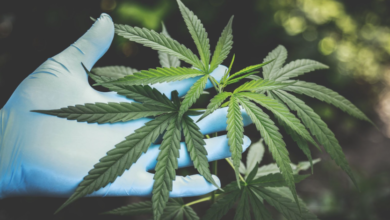Is CBD Legal in India?

The legal status of cannabidiol (CBD) in India presents a complex landscape shaped by various regulations, notably the Narcotic Drugs and Psychotropic Substances Act of 1985. Despite its non-psychoactive nature and potential health benefits, ambiguities in enforcement and definition often leave consumers and businesses in a state of uncertainty. As India grapples with the need for a coherent regulatory framework, the implications for market access and consumer rights become increasingly pertinent. Understanding how these factors intertwine will provide clarity on whether CBD can truly find its place in the Indian market.
Overview of CBD
Cannabidiol (CBD) is a non-psychoactive compound derived from the cannabis plant, recognized for its potential therapeutic benefits without the intoxicating effects associated with tetrahydrocannabinol (THC).
Research highlights various health benefits, including anxiety reduction and anti-inflammatory properties.
Production methods vary, focusing on extraction techniques such as CO2 or ethanol, which influence the quality and efficacy of the final CBD products available to consumers.
Legal Framework in India
What constitutes the legal status of CBD in India is a complex interplay of various regulations and government policies concerning cannabis and its derivatives.
Despite some advancements, enforcement challenges persist, often leading to confusion among consumers and businesses alike.
The ambiguity in legal definitions and the lack of a unified regulatory framework complicate the landscape for those seeking clarity and freedom in CBD use.
Regulations Governing CBD
The regulations governing CBD in India are primarily influenced by the Narcotic Drugs and Psychotropic Substances Act of 1985, which establishes a framework for the control and management of cannabis and its derivatives.
CBD sourcing remains complex due to regulatory challenges, including the ambiguity surrounding permissible levels of THC and the licensing process, which can hinder market access and innovation within the industry.
Consumer Considerations
Understanding consumer considerations in the context of CBD in India involves evaluating factors such as product quality, sourcing transparency, and adherence to regulatory standards.
Consumers must prioritize products demonstrating robust health benefits while ensuring compliance with legal frameworks.
Scrutiny of labeling and ingredient sourcing is essential, as the efficacy and safety of CBD products directly correlate with their quality and transparency in manufacturing practices.
Conclusion
In the labyrinth of India's legal landscape, the status of CBD remains shrouded in uncertainty, akin to the elusive nature of a mirage.
Despite its non-psychoactive properties and potential health benefits, the regulatory framework surrounding CBD is fraught with ambiguity, leaving consumers and businesses navigating a complex web of enforcement challenges.
As the discourse evolves, a call for clarity and coherence in regulation becomes imperative, echoing the timeless pursuit of understanding in an ever-changing world.




